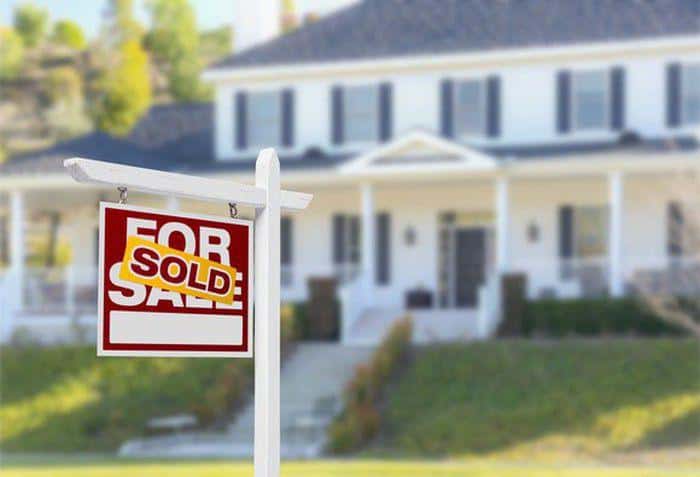
Buying a house is one of life’s most exciting milestones. You get to decorate, make the home your own, and set down roots — all while building equity and, ideally, increasing your net worth.
But buying a house is also a really big financial decision, and if you don’t hit some money milestones before you get a mortgage you could end up with a house that’s more a financial burden than a blessing. How can you know if you’re ready to buy a house? Make sure you do these three things first.
1. Save enough a down payment.
When you buy a home, traditionally you’re supposed to have a 20% down payment. That means you have to pay 20% of the price for the house up front, before you can move in. Most people don’t have that much.
If you don’t have 20% to put down on your new home, you’ll have to pay for private mortgage insurance (PMI). PMI usually has an annual cost of around .5% to 1% of the total amount borrowed. If you borrow $300,000, you could end up paying around $3,000 per year in PMI. This PMI doesn’t protect you, even though you pay for it. It protects your lender, because PMI makes sure the lender gets all its money back if it has to foreclose.
You can request to have PMI dropped if you’ve paid down your loan enough that your balance is 80% or less of your home’s market value. And the bank must automatically drop PMI once your loan balance is down to 78% of your home’s value. But it could take years to reach that point, and you’ll be wasting money all the while.
Not only is not having a down payment expensive because of PMI costs, but it’s also really risky. If you don’t put 20% down on your home and real estate values fall, it could be difficult or impossible to refinance or sell because you could end up owing more than your home is worth.
Don’t forget, when you sell your home you may have to pay around 6% commission to realtors, as well as other costs. Without a hefty down payment, there’s a good chance you won’t be able to sell your home for what you owe if you didn’t have a big down payment and you need to move within the first few years of owning the home.
If you couldn’t sell your home for enough to pay off your loan, you’ll need to bring cash to the table from your own pocket to pay off the total you owe. Otherwise you’ll be stuck in the house unless the lender agree to a short sale — which would ruin your credit. You don’t want to be stuck in your home if you need to move, so don’t buy a home without a big down payment under your belt.
2. Have a robust emergency fund.
Being a homeowner comes with a lot of surprise expenses. If you need a new water heater or a new roof, you’re the one on the hook to pay whatever it costs– not your landlord. If you don’t have money set aside for these unexpected emergencies, you could quickly end up in debt.
If you don’t have an emergency fund, you’re taking an enormous risk by buying a home. The problem: If you have a health issue or job setback and your income falls, you may not be able to keep up with paying your mortgage. This could lead to a foreclosure, or when the bank you owe takes back your house, if you can’t sell the home quickly enough once paying the bills becomes impossible.
To make sure you have the cash you need to keep your house — and maintain it — try to save an emergency fund worth three to six months of living expenses. If you do this before you buy a home, you can move in without worries because you’ll have the cash to cover unexpected issues that inevitably arise.
3. Make sure your total housing costs are affordable.
Far too many people in America are house-poor, which means they’re spending too much of their income on their house and don’t have enough left over for other things. You don’t want to be one of them.
It’s important to make sure your total monthly housing costs — including your mortgage, property taxes, utilities, insurance, and homeowner’s association costs — are affordable for you. Generally, most experts say you shouldn’t spend more than 30% of your income on housing, but you may want to keep this percentage even lower if you have other big financial goals you’re working toward.
To make sure you’re able to afford the new house you want to buy, figure out what your all-in costs would be each month, including your mortgage and other housing expenses. If this is more than your current mortgage or rent, do a test-run and try living as though you’re currently making your mortgage payments.
If your total housing costs as a homeowner will be $2,000 monthly and you’re currently paying $1,500 in rent, you’ll want to “make” your mortgage payment by moving the extra $500 monthly into a savings account you don’t touch. Doing this exercise will help you see what your life will be like once you’re making $2,000 mortgage payments. You can decide if this is actually realistic.
Don’t become a homeowner before you’re ready
While this all may seem like a lot to do before buying a home, it’s important to make sure you’re really financially ready. Buying a home is likely the biggest purchase you’ll ever make. And homeownership isn’t always a good investment — as the 2008 real estate crisis taught us. You owe it to yourself to be smart, and doing these three things before you buy is important to make sure your purchase works out in the end.
























